Related Research Articles
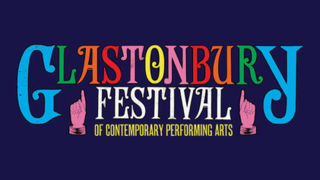
Glastonbury Festival is a five-day festival of contemporary performing arts held near Pilton, Somerset, England in most summers. In addition to contemporary music, the festival hosts dance, comedy, theatre, circus, cabaret, and other arts. Leading pop and rock artists have headlined, alongside thousands of others appearing on smaller stages and performance areas. Films and albums have been recorded at the festival, and it receives extensive television and newspaper coverage.

Todmorden is a market town and civil parish in the Upper Calder Valley in Calderdale, West Yorkshire, England. It is 17 miles north-east of Manchester, 8 miles (13 km) south-east of Burnley and 9 miles (14 km) west of Halifax. In 2011, it had a population of 15,481.
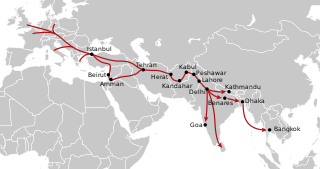
Hippie trail is the name given to an overland journey taken by members of the hippie subculture and others from the mid-1950s to the late 1970s travelling from Europe and West Asia through South Asia such as Afghanistan, Pakistan, India, Nepal, Sri Lanka, Bangladesh to Thailand. The hippie trail was a form of alternative tourism, and one of the key elements was travelling as cheaply as possible, mainly to extend the length of time away from home. The term "hippie" became current in the mid-to-late 1960s; "beatnik" was the previous term from the later 1950s.

John Victor Lindsay "Hoppy" Hopkins was a British photographer, journalist, researcher and political activist, and "one of the best-known underground figures of 'Swinging London' " in the late 1960s.

New Age Travellers are people located primarily in the United Kingdom generally espousing New Age beliefs with hippie or Bohemian culture of the 1960s. New Age Travellers used to travel between free music festivals and fairs prior to crackdown in the 1990s. New Traveller also refers to those who are not traditionally of an ethnic nomadic group but who have chosen to pursue a nomadic lifestyle.
The London Film-makers' Co-op, or LFMC, was a British film-making workshop founded in 1966. It ceased to exist in 1999 when it merged with London Video Arts to form LUX.

Free festivals are a combination of music, arts and cultural activities, for which often no admission is charged, but involvement is preferred. They are identifiable by being multi-day events connected by a camping community without centralised control. The pioneering free festival movement started in the UK in the 1970s.

Nambassa was a series of hippie-conceived New Zealand festivals held from 1976 to 1981 on large farms around Waihi and Waikino in the Waikato. They were music, arts and alternatives festivals that focused on peace, love, and an environmentally friendly lifestyle. In addition to popular entertainment, they featured workshops and displays advocating alternative lifestyle and holistic health issues, alternative medicine, clean and sustainable energy, and unadulterated foods.
Nicholas Saunders, born Nicholas Carr-Saunders, was a British social inventor, activist, greengrocer, property developer and enterpreneur in the English 'alternative' movement from the 1970s until his death in a car crash near Kroonstad, South Africa. In 1976, he founded the Whole Food Warehouse, Monmouth Coffee Company in 1978 Neal's Yard Dairy in 1979, and the 'Apothecary' dispensing alternative and natural remedies, now known as Neal's Yard Remedies.
The Institute for Social Inventions was a think tank set up in 1985 to publicise and launch good ideas for improving the quality of life. Its founder Nicholas Albery (1948–2001) sought to promote non-technological innovations.

Housetruckers are individuals, families and groups who convert old trucks and school buses into portable homes called housetrucks and live in them, preferring an unattached and transient lifestyle to more conventional housing. These vehicles began appearing around New Zealand during the mid-1970s and, even though there are fewer today, they continue to travel New Zealand roads.
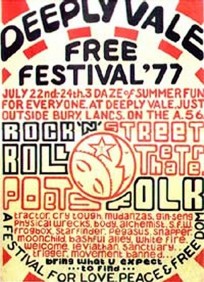
The Deeply Vale Festivals were free festivals held near Bury in northwest England in 1976, 1977, 1978 and 1979 and at a different site in 1980 and 1981. They are regarded as significant events that united punk music into the festival scene. Anniversary festivals took place in March 2015 and September 2016.
Radio Avalon was a pirate radio station set up at the Glastonbury Festival near Glastonbury, England, in 1983. It later became a legally recognised station. In 2007, Radio Avalon was replaced with Worthy FM.

Maureen Wheeler is a Northern Irish and Australian businesswoman, who co-founded the travel publisher Lonely Planet with her husband, Tony Wheeler.
The Windsor Free Festival was a British free festival held in Windsor Great Park from 1972 to 1974. Organised by some London commune dwellers, notably Ubi Dwyer and Sid Rawle, it was in many ways the forerunner of the Stonehenge Free Festival, particularly in the brutality of its final suppression by the police, which led to a public outcry about the tactics involved.

Bill 'Ubi' Dwyer or William Ubique Dwyer was an anarchist activist in New Zealand, Australia, England and his native Ireland and is best known as the originator and principal organiser of the Windsor Free Festival.
Thomas Crimble is a musician who played with Skin Alley and Hawkwind before becoming a central part of the organisation of the Glastonbury Festival from the 1971 free festival until 1999. He subsequently became involved in Nik Turner's alternative Hawkwind project Space Ritual.
Nicholas Bronson Albery was a British social inventor and author, was the instigator or coordinator of a variety of projects aimed at an improvement to society, often known as the alternative society.
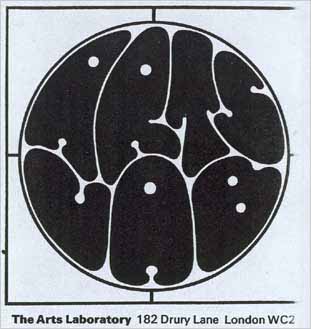
The Arts Lab was an alternative arts centre, founded in 1967 by Jim Haynes at 182 Drury Lane, London. Although only active for two years, it was influential in inspiring many similar centres in the UK, continental Europe and Australia, including the expanded Institute of Contemporary Arts (ICA) in London, the Milky Way/Melkweg in Amsterdam, the Entrepôt in Paris and the Yellow House Artist Collective founded by Martin Sharp in Sydney.
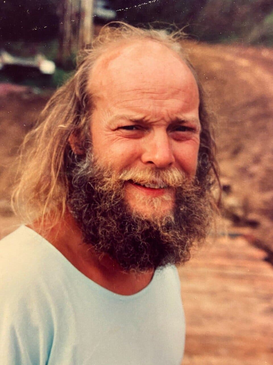
Geoff Crowther was a British travel writer who wrote for BIT and Lonely Planet.
References
- ↑ Harris, Jonathan; Grunenberg, Christopher (2005). Summer of love: psychedelic art, social crisis and counterculture in the 1960s. Liverpool University Press. ISBN 978-0853239291.
- ↑ May, John (31 August 2006). "ALTERNATIVE SOCIETY 1970s: BIT Travel Guide". The Generalist. Retrieved 11 November 2016.
- ↑ "ALTERNATIVE SOCIETY 1970s: FEEDBACK". The Generalist (John May). 15 December 2007. Retrieved 9 November 2016.
- ↑ Overland to India and Australia, worldcat.org. Retrieved 11 March 2021.
- ↑ Crowther, Ashley (24 December 2020). "Before Lonely Planet, BIT Guides Ruled". Ashley Crowther / Ashley Crowther. Archived from the original on 25 January 2021. Retrieved 29 April 2021.
- ↑ Peter Shipley, Revolutionaries in Modern Britain, Bodley Head, 1976, (p. 203)
- ↑ "Glastonbury free festival 1977".
